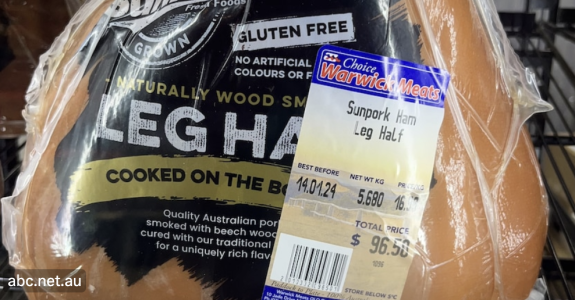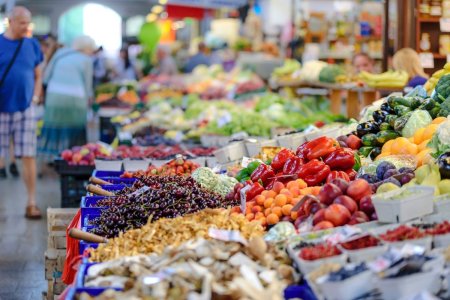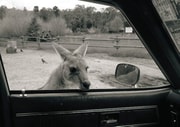Shocking price gouging inquiry reveals almost $100 price tag on ham in rural areas
For years, nearly everybody has grappled with the ongoing challenge of making their dollars go the extra mile.
The past year, however, has proven exceptionally tough, especially for those residing in the remote reaches of Australia.
With inflation on the rise and people feeling the squeeze when it comes to budgeting for groceries, it's disheartening to learn about the costs some Australians have no choice but to bear, such as a staggering $100 price tag on ham in Cape York.
The Australian Council of Trade Unions (ACTU) is conducting an inquiry on price gouging across various industries.
Most recently, it stopped over in Cairns, Queensland, where it heard the story of retired nurse Ann Kreger.
Ms Kreger recently testified at a hearing in the city about her challenges in coping with the increasing cost of living.
‘I have a fixed income pension, partly through superannuation and the government, but my savings have been completely depleted over the last year. There’s no non-essentials anymore,’ shared Ms Kreger.
She added that due to financial constraints, she had to forego contents insurance in the cyclone-prone area and is contemplating cancelling her car insurance.
The inquiry was held in Cairns for its closeness to Cape York and Torres Strait, where prices are said to be more than triple those in urban centres.
Former Australian Competition and Consumer Commission (ACCC) Head Allan Fels is at the helm of the inquiry.
The inquiry received reports of individuals spending close to $100 for a leg of ham among the 600 submissions examined.
Mince held a hefty price tag of $19.00 per kilogram, while diesel costs soared to an eye-watering $2.87 per litre.
General Secretary of the Queensland Council of Unions (QCU) Jacqueline King believes the inquiry will uncover where prices have been highly inflated.
‘Housing, food, transport, energy, insurance and education have all gone up, so I think it's fair to look at who the players are in that space,’ Ms King noted.
Ms King further stressed that attributing the rise in grocery prices and Woolworth's grocery division's 20 per cent profit increase in the last 12 months to the war in Ukraine is not warranted.
Big business groups have vehemently disputed the evidence presented by Ms King and the ACTU.
Andrew McKellar, representing the Australia Chamber of Commerce and Industry (ACCI), went as far as to label it a ‘total Punch and Judy show.'
According to Mr McKellar, the surge in costs is primarily attributed to supply shortages and heightened market demand.
Meanwhile, the ACTU noted major banks and supermarkets have refused to attend hearings.
The inquiry on price gouging is also expected to continue, with the target for an interim report set at the end of 2023.

Members, what do you think of this story? Have you experienced situations where the prices of certain groceries seem unreasonably high? Share your thoughts in the comments below!
The past year, however, has proven exceptionally tough, especially for those residing in the remote reaches of Australia.
With inflation on the rise and people feeling the squeeze when it comes to budgeting for groceries, it's disheartening to learn about the costs some Australians have no choice but to bear, such as a staggering $100 price tag on ham in Cape York.
The Australian Council of Trade Unions (ACTU) is conducting an inquiry on price gouging across various industries.
Most recently, it stopped over in Cairns, Queensland, where it heard the story of retired nurse Ann Kreger.
Ms Kreger recently testified at a hearing in the city about her challenges in coping with the increasing cost of living.
‘I have a fixed income pension, partly through superannuation and the government, but my savings have been completely depleted over the last year. There’s no non-essentials anymore,’ shared Ms Kreger.
She added that due to financial constraints, she had to forego contents insurance in the cyclone-prone area and is contemplating cancelling her car insurance.
The inquiry was held in Cairns for its closeness to Cape York and Torres Strait, where prices are said to be more than triple those in urban centres.
Former Australian Competition and Consumer Commission (ACCC) Head Allan Fels is at the helm of the inquiry.
The inquiry received reports of individuals spending close to $100 for a leg of ham among the 600 submissions examined.
Mince held a hefty price tag of $19.00 per kilogram, while diesel costs soared to an eye-watering $2.87 per litre.
General Secretary of the Queensland Council of Unions (QCU) Jacqueline King believes the inquiry will uncover where prices have been highly inflated.
‘Housing, food, transport, energy, insurance and education have all gone up, so I think it's fair to look at who the players are in that space,’ Ms King noted.
Ms King further stressed that attributing the rise in grocery prices and Woolworth's grocery division's 20 per cent profit increase in the last 12 months to the war in Ukraine is not warranted.
Big business groups have vehemently disputed the evidence presented by Ms King and the ACTU.
Andrew McKellar, representing the Australia Chamber of Commerce and Industry (ACCI), went as far as to label it a ‘total Punch and Judy show.'
According to Mr McKellar, the surge in costs is primarily attributed to supply shortages and heightened market demand.
Meanwhile, the ACTU noted major banks and supermarkets have refused to attend hearings.
The inquiry on price gouging is also expected to continue, with the target for an interim report set at the end of 2023.
Key Takeaways
- An inquiry backed by the Australian Council of Trade Unions (ACTU) is examining price gouging across various industries in Australia, with testimony from locals citing extremely high costs of living.
- A retired nurse, Ann Kreger, gave evidence of her struggle with rising costs, revealing she had dropped her home insurance and was considering letting go of her car insurance.
- The inquiry heard that locals in Cape York were paying excessively high prices for groceries, including $19 per kilogram for mince and nearly $100 for a leg of ham.
- Despite input from many individuals, major banks or supermarket giants have yet to attend the hearings.
- The inquiry's interim report is expected by the end of the year.









